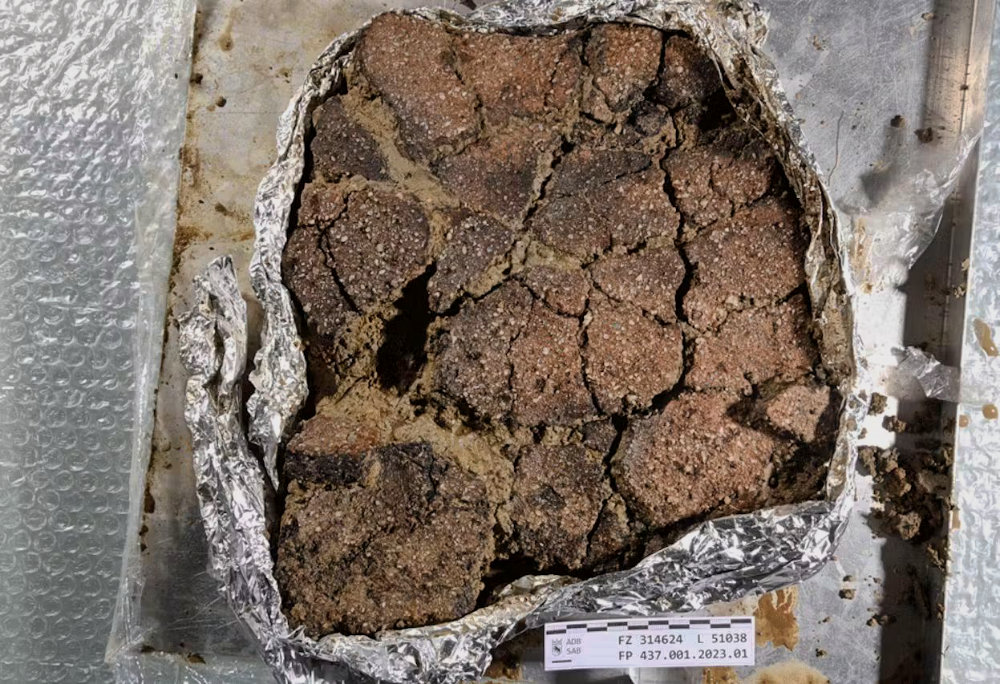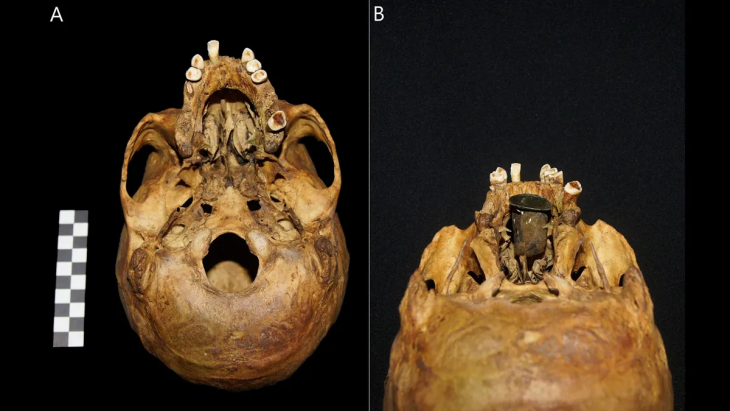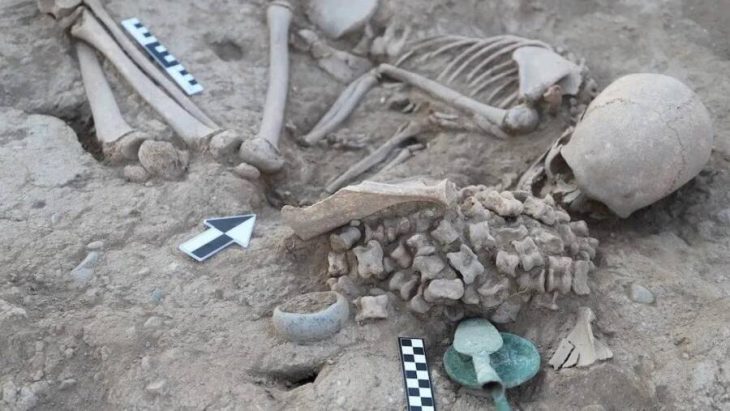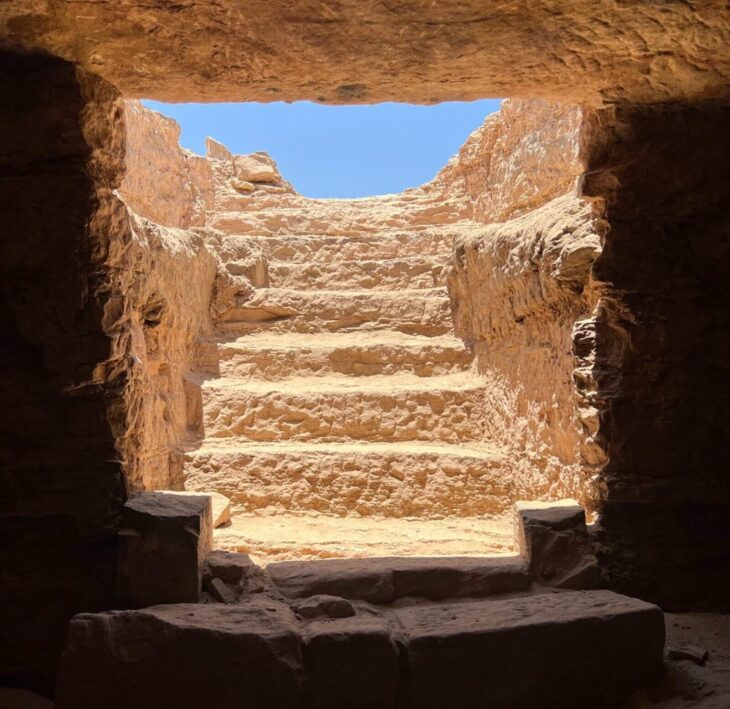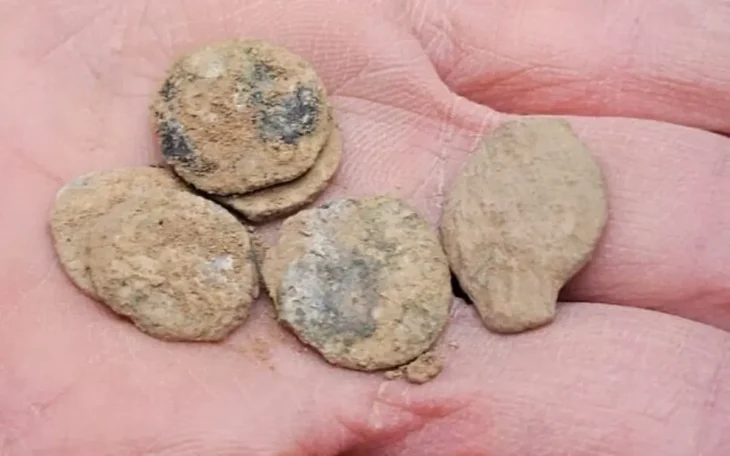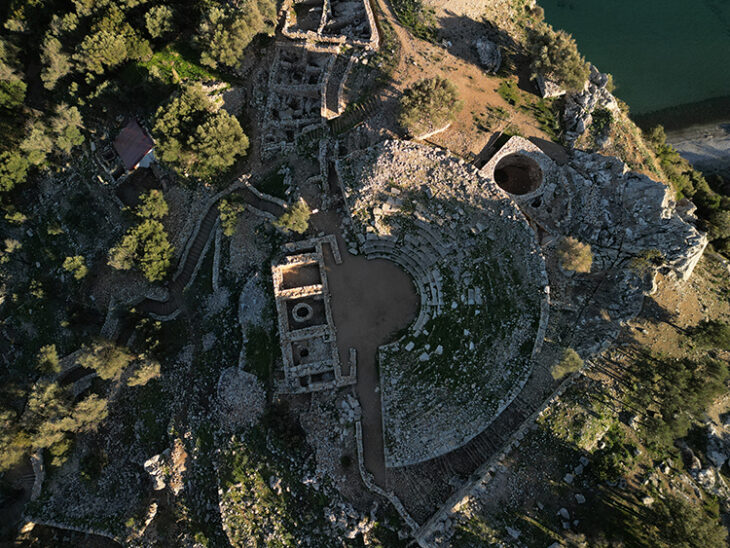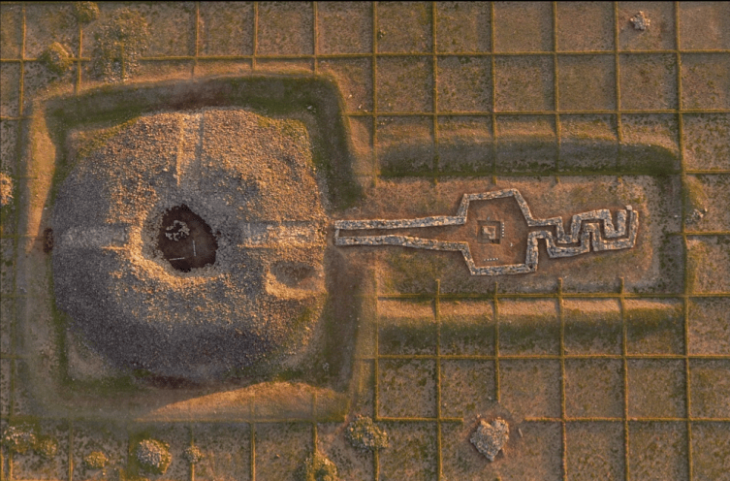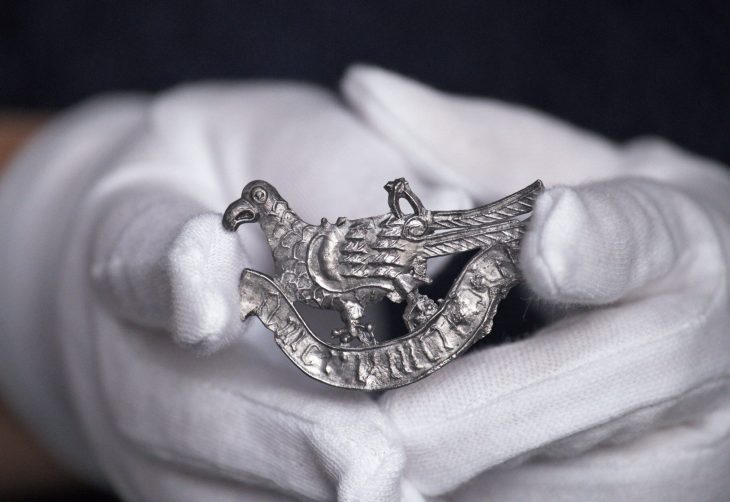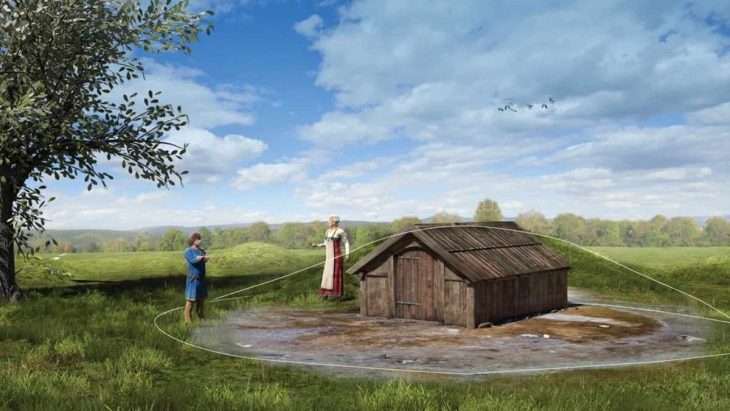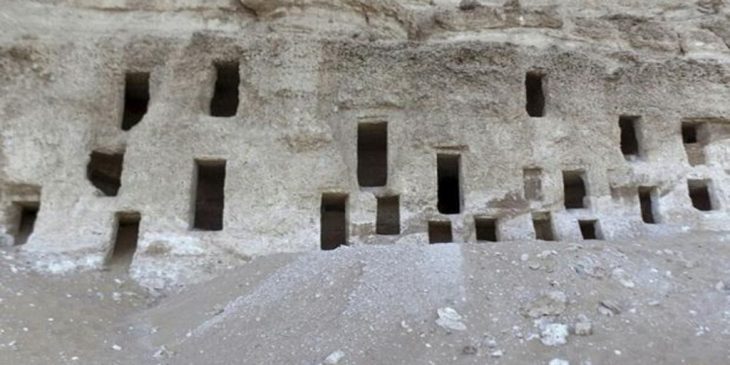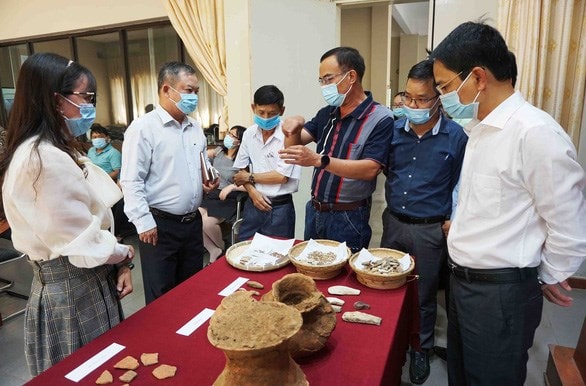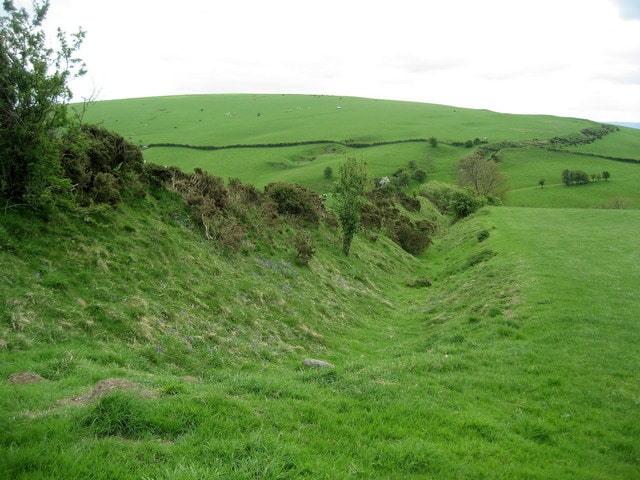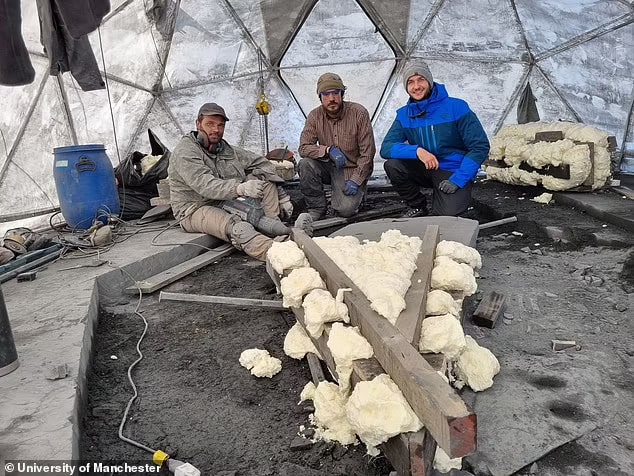In advance of a construction project in Heimberg, the Archaeological Service of the Canton of Bern carried out a rescue excavation in autumn 2023. Although the investigation yielded hardly any new findings about an expected Roman site, it did reveal the remains of a previously unknown settlement from the Bronze Age.
During the investigation at the Schulgässli in Heimberg, which lasted a good three months, various settlement remains were documented on almost 1000 m²: in addition to a usage horizon with a very high proportion of heat stones and (relatively) a lot of Bronze Age ceramics, also various post positions and pits.
Two of these pits were filled to the brim with heat stones, i.e. stones that had been shattered by great heat. These could have been used as heat storage in cooking or heating pits and represent a typical finding for the Bronze Age.
Other pits may have been used to extract clay. At that time, clay was an important raw material and was used, for example, to plaster the wicker walls of houses or to produce pottery. This is matched by an up to 35 m thick layer package of hillside clay in the excavation area.
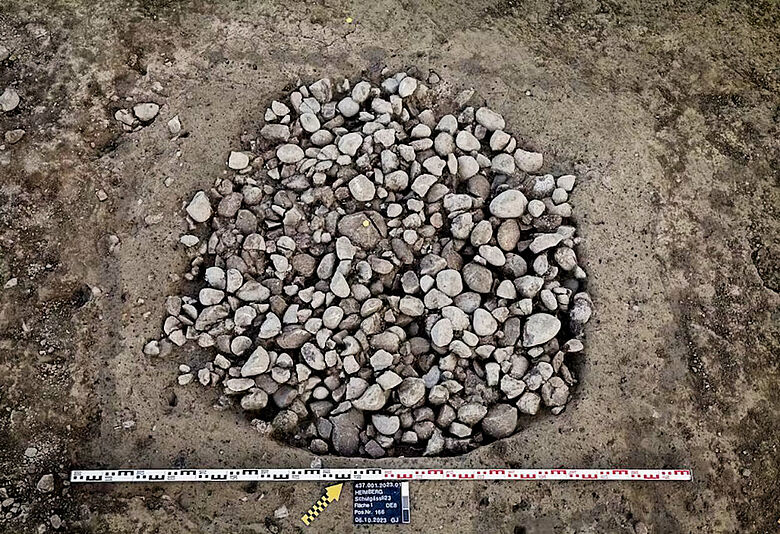
As some much younger extraction pits show, this clay deposit was later exploited by the well-known Heimberg potters of modern times. A brickworks excavated in Heimberg in 1964 provides similar evidence for the Roman period.
📣 Our WhatsApp channel is now LIVE! Stay up-to-date with the latest news and updates, just click here to follow us on WhatsApp and never miss a thing!!
The site in Heimberg is one of a whole series of new Bronze Age discoveries between Thun and Bern in recent years. For example, it has been known since 2014 that remains of pile dwellings have also been preserved in the lower Lake Thun basin, in front of Schadau Castle.
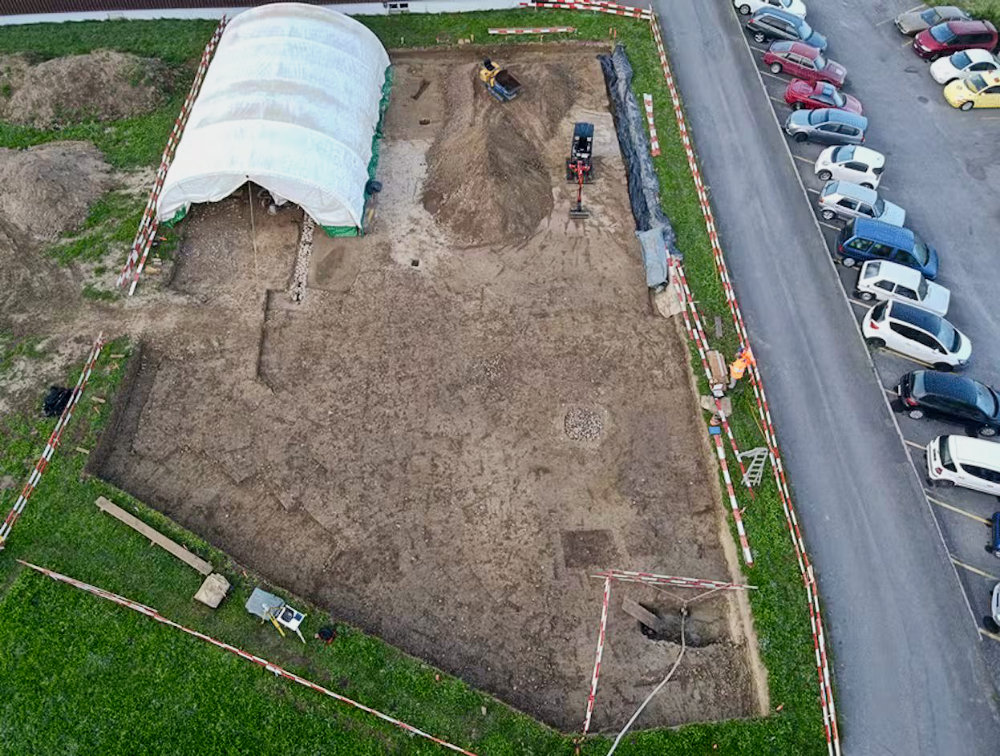
Rescue excavations in Thun-Schoren, Richigen, and Kehrsatz/Chlywabere have also uncovered extensive Bronze Age settlement remains. The new Bronze Age sites demonstrate the importance of the Aare Valley as a habitat and transport route between the Alps (passes) and the Swiss Plateau.
Archaeological Service of the Canton of Bern
Cover Photo: Bronze Age ceramics recovered as a block from the rescue excavation in Heimberg. Photo © Archaeological Service of the Canton of Bern, Frédérique Tissier

